第50章 CHAPTER 4(10)
The love of power and the love of liberty are in eternal antagonism. Wherethere is least liberty, the passion for power is the most ardent and unscrupulous.
The desire of power over others can only cease to be a depraving agency amongmankind, when each of them individually is able to do without it: which canonly be where respect for liberty in the personal concerns of each is anestablished principle.
But it is not only through the sentiment of personal dignity, that thefree direction and disposal of their own faculties is a source of individualhappiness, and to be fettered and restricted in it, a source of unhappiness,to human beings, and not least to women. There is nothing, after disease,indigence, and guilt, so fatal to the pleasurable enjoyment of life as thewant of a worthy outlet for the active faculties. Women who have the caresof a family, and while they have the cares of a family, have this outlet,and it generally suffices for them: but what of the greatly increasing numberof women, who have had no opportunity of exercising the vocation which theyare mocked by telling them is their proper one? What of the women whose childrenhave been lost to them by death or distance, or have grown up, married, andformed homes of their own? There are abundant examples of men who, aftera life engrossed by business, retire with a competency to the enjoyment,as they hope, of rest, but to whom, as they are unable to acquire new interestsand excitements that can replace the old, the change to a life of inactivitybrings ennui, melancholy, and premature death. Yet no one thinks of the parallelcase of so many worthy and devoted women, who, having paid what they aretold is their debt to society -- having brought up a family blamelessly tomanhood and womanhood -- having kept a house as long as they had a houseneeding to be kept -- are deserted by the sole occupation for which theyhave fitted themselves; and remain with undiminished activity but with noemployment for it, unless perhaps a daughter or daughter-in-law is willingto abdicate in their favour the discharge of the same functions in her youngerhousehold. Surely a hard lot for the old age of those who have worthily discharged,as long as it was given to them to discharge, what the world accounts theironly social duty. Of such women, and of those others to whom this duty hasnot been committed at all -- many of whom pine through life with the consciousnessof thwarted vocations, and activities which are not suffered to expand --the only resources, speaking generally, are religion and charity. But theirreligion, though it may be one of feeling, and of ceremonial observance,cannot be a religion of action, unless in the form of charity. For charitymany of them are by nature admirably fitted; but to practise it usefully,or even without doing mischief, requires the education, the manifold preparation,the knowledge and the thinking powers, of a skilful administrator. Thereare few of the administrative functions of government for which a personwould not be fit, who is fit to bestow charity usefully. In this as in othercases (pre-eminently in that of the education of children), the duties permittedto women cannot be performed properly, without their being trained for dutieswhich, to the great loss of society, are not permitted to them. And herelet me notice the singular way in which the question of women's disabilitiesis frequently presented to view, by those who find it easier to draw a ludicrouspicture of what they do not like, than to answer the arguments for it. Whenit is suggested that women's executive capacities and prudent counsels mightsometimes be found valuable in affairs of State, these lovers of fun holdup to the ridicule of the world, as sitting in Parliament or in the Cabinet,girls in their teens, or young wives of two or three and twenty, transportedbodily, exactly as they are, from the drawing-room to the House of Commons.